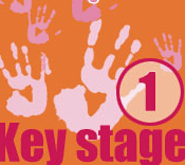One in three premature babies fare less well at school

New research shows that almost one in three children born prematurely (before 37 weeks) have lower Key Stage 1 (KS1) test results than children who are born at full term (37-42 weeks) and more than a third have special educational needs (SEN).
Researchers, led by Dr David Odd from the University of Bristol's School of Clinical Sciences, found that prematurely born children were at an educational disadvantage compared to children who were born at full term and this was more marked if they entered school a year earlier because they had been born prematurely.
For example, a preterm baby born in August may start school a year earlier than if they had been born a few weeks later in September on their due date.
The study, which analysed data on almost 12,000 participants from Bristol's Children of the 90s study, found that these infants placed in an earlier school year by their early birth had lower scores than those in the correct year.
Up to one in six preterm infants may be enrolled in school a year earlier than they would be if they had been born at term.
There is a gradual reduction in mean KS1 scores for all children born after September (and hence younger in the school year) but in children born prematurely, the pattern is more marked.
Speaking about the findings, lead author Dr David Odd, Senior Clinical Lecturer at the University of Bristol's School of Clinical Sciences and a clinician based at Southmead Hospital NICU in Bristol, said: "Our research indicates that children who were born prematurely are at higher risk of poor school performance and in greater need of additional educational support at primary school. Some of the social and educational difficulties these children face may be avoidable by recognising the impact that their date of birth has on when they start school."
Professor Sir Al Aynsley-Green, former first Children's Commissioner for England and Professor Emeritus of Child Health, University College London, added: "The increase in survival rates for premature babies is a great medical success. However, the consequence of this for too many infants is that their educational needs are not being addressed adequately, including the age at which they start formal school education. Education experts must look at these data and argue for a change in policy so that the school entry age for children born prematurely is based on their expected due date rather than their premature date of birth."
More information: Odd, D., Evans, D. and Emond, A. Preterm Birth, Age at School Entry and Educational Performance' is published today, PLOS ONE, 17 October 2013.










.jpg)




